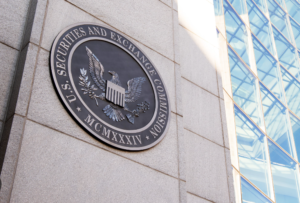$FTSE $GBPUSD $BTC
#UKEconomy #Finance #BorrowingCosts #PublicSpending #Inflation #InterestRates #LowGrowth #DebtCrisis #FiscalPolicy #GovernmentSpending #UKMarkets #EconomicOutlook
Former U.K. Finance Minister Vince Cable has weighed in on the current state of the British economy, dismissing suggestions of an immediate fiscal emergency yet cautioning about deeper structural concerns. His insights arrive amid heightened market scrutiny after a noticeable spike in borrowing costs for the United Kingdom. The increased yields on government bonds, or gilts, have once again put the country’s fiscal policies under the spotlight. While Cable emphasized that the U.K. is not in a state of “emergency panic,” he stressed that the nation remains caught in a “low-growth trap,” an ongoing issue that could exacerbate challenges related to debt management and public services spending.
Financial market observers have been closely watching the surge in UK gilt yields, as any sustained rise in borrowing costs poses risks to the government’s fiscal strategy. Investors are pricing higher risk premiums into government debt amid rising inflation and uncertainty regarding monetary policy adjustments from the Bank of England. This development could force policymakers to make difficult choices, particularly around public spending. Austerity measures and budget cuts could potentially be introduced as the government seeks to contain public sector debt, which has ballooned to nearly 100% of GDP. For markets, the knock-on effects could deter foreign investment and ripple through sectors like housing and equities, further constraining economic growth.
The borrowing cost increases come at a precarious time. The U.K. continues to face sluggish GDP growth, even lagging behind other advanced economies. Structural weaknesses such as low productivity and dwindling business investments have dampened prospects for a robust recovery, leaving the country reliant on monetary and fiscal interventions to avoid stagnation. If borrowing costs continue to rise, the ability to execute necessary investments in infrastructure, health, and education could be undermined, potentially prolonging the low-growth cycle. Cable’s comments reflect concerns echoed by both market participants and economists, as the nation’s fiscal room to maneuver narrows when debt servicing costs surge.
From a broader market perspective, the uncertainties surrounding elevated borrowing costs and fiscal sustainability could send ripples beyond gilts. A weaker British pound ($GBPUSD) has compounded imported inflation, impacting households and businesses alike. On the global stage, nervousness around U.K. fiscal health could lead to a reevaluation of risk in developed markets, as investors reassess the balance of growth and inflation targets. Additionally, if austerity or spending cuts are implemented, public protests and workforce strikes could intensify, further destabilizing the domestic economic landscape. As markets attempt to price in these risks, the wider impact on confidence in UK equities, bonds, and even indirect correlations with global assets like cryptocurrencies ($BTC) remains to be closely monitored.











Comments are closed.